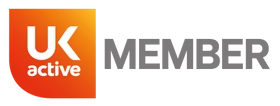As experts in personal training, a common theme that regularly occurs for our trainers alongside building muscle and losing weight is what supplements to take. It is important to remember that we are unable to advise which supplements you should or shouldn’t take. Every fitness journey is different, and it is up to you if you choose to include supplements in your exercise regime and how you do this. The main thing we ask is to do your research to find the best supplement that works for you if you choose to take them. To save you a bit of time trawling through the internet and not knowing which sources to trust, I have done some of the main research for you! In this blog I've broken down the questions of ‘What supplements should I take to build muscle?’ ‘What supplements should I take to lose weight?’ And simply ‘which supplements actually work?’
Disclaimer – this article will explore the concept of supplements for gaining muscle. The article's content is opinion-based only and is not intended as nutritional advice. Always consult with a healthcare professional before adding any new supplements to your routine to ensure they align with your individual health needs.
Understanding the Basics: What supplements should I take?
Embarking on a journey to build muscle involves more than just hitting the gym; it requires a comprehensive approach that includes a well-rounded diet, effective training regime, and, for many, the strategic use of supplements. A lot of people think that taking supplements will automatically mean they can build muscle however this isn’t usually the case – at the end of the day it still amounts to hard work, dedication and motivation! With countless supplement options available, (trust us we did the research!) It's crucial to understand which supplements can genuinely aid muscle growth and how they can work for you if you choose to take them.
Before delving into specific supplements, it's essential to recognise the foundational elements of muscle growth. A combination of resistance training, sufficient protein intake, and overall caloric surplus is what lays the groundwork for building muscle. We have a great blog on how to gain muscle so you can incorporate these top tips into your regime too! For muscle building, you need to follow a structured workout plan that progressively overloads your muscles, along with good recovery habits. If you're interested in designing your own strength-building programs or helping others achieve their goals, the Level 3 Diploma in Gym Instructing and Personal Training can equip you with the knowledge and skills to succeed. Supplements should then complement these fundamentals rather than serve as a shortcut or replacement. If you are unsure how to do any of these things, then make sure to speak to either a personal trainer or nutritionist to find the best way to aid your personal muscle growth.
While a balanced diet should always come first, supplements can support muscle growth by providing key nutrients like protein, creatine, and amino acids. If you want to dive deeper into the science of sports nutrition, the Association for Nutrition is a great place to find evidence-based insights.
What supplements should I take to build muscle?
Whey Protein
One of the most well-known and widely used supplements for muscle building is whey protein. Derived from milk, whey protein is rich in essential amino acids, especially leucine, which plays a crucial role in muscle protein synthesis. If you are looking for the answer to the question: ‘what supplements should I take to gain muscle?’, then Whey protein is often at the top of the list. Numerous studies have highlighted the effectiveness of whey protein in promoting muscle growth. A study published in the "American Journal of Clinical Nutrition" found that supplementing with whey protein significantly increased muscle protein synthesis compared to other protein sources.
Creatine
Creatine is a naturally occurring compound found in small amounts in various foods, but it's also a popular supplement for those aiming to enhance their muscle-building efforts. Creatine monohydrate, the most researched form of creatine, helps replenish adenosine triphosphate (ATP) stores in muscles, leading to increased strength and power during resistance training. Research consistently supports the benefits of creatine supplementation for muscle growth concluding that creatine is effective for increasing strength, muscle mass and overall performance.
Branched-Chain Amino Acids (BCAAs)
BCAAs, including leucine, isoleucine, and valine, are essential amino acids that the body cannot produce on its own. They play a crucial role in protein synthesis and can be beneficial for muscle growth. While BCAAs can be obtained through a balanced diet, supplementing with them can provide additional support, especially during intense training. So, if you are looking for fitness supplements for men, or gym supplements for women, this might be a great protein building supplement for you. Many people also ask us for supplements after workout, a study in the "Journal of the International Society of Sports Nutrition" found that BCAA supplementation reduced muscle soreness and accelerated recovery after resistance exercise. Supplementing your diet with high-quality protein powders, amino acids, and other key nutrients can help support your muscle-building journey when combined with proper training and a balanced diet. To deepen your understanding of nutrition and how it supports athletic performance, the Level 4 Certificate in Nutrition offers an excellent opportunity to expand your expertise
Beta-Alanine
Beta-alanine is an amino acid that combines with histidine to form carnosine in muscles. Carnosine acts as a buffer, helping to reduce the build-up of lactic acid during exercise, which can enhance endurance and delay fatigue. It can increase muscle carnosine levels, leading to enhanced exercise capacity allowing you to train for longer periods. If you are looking for ‘what gym supplements should I take’ then research supports the use of beta-alanine for improving exercise performance. These are also great supplements for women who still want to build muscle but don’t want to aid muscle growth like a body builder may want too!
It’s important to remember that building muscle isn’t just for bodybuilder physique! Building muscle is also effective for weight loss, endurance training and should also just be part of your regular fitness journey. Take a look at our blog on muscular endurance for sports to see how you can also build this up from a physical standpoint. So, what supplements should runners take? All 4 of the top supplements listed above are also effective for runners when searching for ‘what supplements do athletes take’, the research shows a similar story. These are also popular gym supplements for women too, they are not all targeted for men!
Popular muscle-building supplements include whey protein, creatine, and branched-chain amino acids (BCAAs), which all play a role in muscle recovery and growth. If you're interested in learning more about the impact of supplements on public health and performance, the Royal Society for Public Health (RSPH) offers useful research and resources.
What supplements should I take to lose weight?
If you’re seeking effective supplements to aid in weight loss, one standout option is green tea extract. Packed with antioxidants and a moderate amount of caffeine, green tea extract has been linked to enhanced fat oxidation and metabolism. The catechins found in green tea, particularly epigallocatechin gallate (EGCG), have been shown to boost the body's ability to burn calories and fat. Additionally, the combination of caffeine and catechins can contribute to improved exercise performance, making it an ideal supplement for those engaging in physical activity as part of their weight loss journey. While it's important to remember that no supplement can replace a healthy diet and regular exercise, some believe that incorporating green tea extract may provide an extra edge in achieving weight loss goals. If you are seeking ways to lose weight, then take a look at our blog ‘ How to lose weight – Our Top Tips ’ for a bit of inspiration!
Common misconceptions about supplements
In the pursuit of muscle-building supplements, it's essential to address common misconceptions that may lead individuals astray. One such myth is the belief that supplements alone can replace the need for a balanced diet and consistent training. Supplements should complement, not replace, a nutritious diet and regular exercise. While they can provide specific nutrients in concentrated forms, relying solely on supplements is unlikely to yield optimal results. It's crucial to view supplements as additions to an already well-structured foundation of nutrition and training.
When researching ‘what supplements should I take for working out’ or ‘what supplements should I take to gain muscle’ not all supplements sadly deliver on their promises. It's vital to be aware of products with little scientific backing or those that have been debunked through research. We have outlined some of these, so you know to avoid certain supplements to take.
- Testosterone Boosters
Some supplements claim to boost testosterone levels, promoting muscle growth. However, research has shown that many of these products lack scientific support. A review published in the "Journal of the International Society of Sports Nutrition" found insufficient evidence to support the use of most testosterone-boosting supplements so when looking for fitness supplements for men, this is not something you would find recommended.
- Nitric Oxide (NO) Boosters
Nitric oxide is a molecule that plays a role in vasodilation, increasing blood flow to muscles during exercise so when looking for ‘what supplements should I take when working out’, these can come up high on a list. While some supplements claim to boost NO levels, evidence supporting their effectiveness is limited. A study in the "Journal of the International Society of Sports Nutrition" concluded that the overall data on NO-boosting supplements is inconclusive, so again for now we should stick to the research.
- Glutamine
Glutamine is an amino acid often marketed as a muscle-building supplement, but research suggests its benefits may be overstated. A study published in the "International Journal of Sport Nutrition and Exercise Metabolism" found that glutamine supplementation did not significantly affect muscle performance or muscle protein synthesis.
Summary of the best supplements to build muscle
From the research I have undertaken the question of "What supplements should I take to build muscle" has more of a multifaceted answer. While certain supplements have demonstrated efficacy in supporting muscle growth, it's crucial to integrate them into a comprehensive approach that includes proper nutrition and regular exercise. Whey protein, creatine, BCAAs, beta-alanine are among the supplements that can contribute to muscle development. However, individuals should be wary of misconceptions and products lacking scientific support, such as testosterone boosters, nitric oxide boosters, and glutamine.
Remember, there is no magic pill for building muscle. A well-balanced diet, consistent training, and smart supplementation can collectively optimise your muscle-building journey. Always consult with a healthcare professional or nutritionist before introducing new supplements into your regimen, ensuring they align with your individual health needs and fitness goals.
See our website for details of our Level 4 Nutrition course.
Article by Jemma Walsh, Blog Editor for Study Active.







